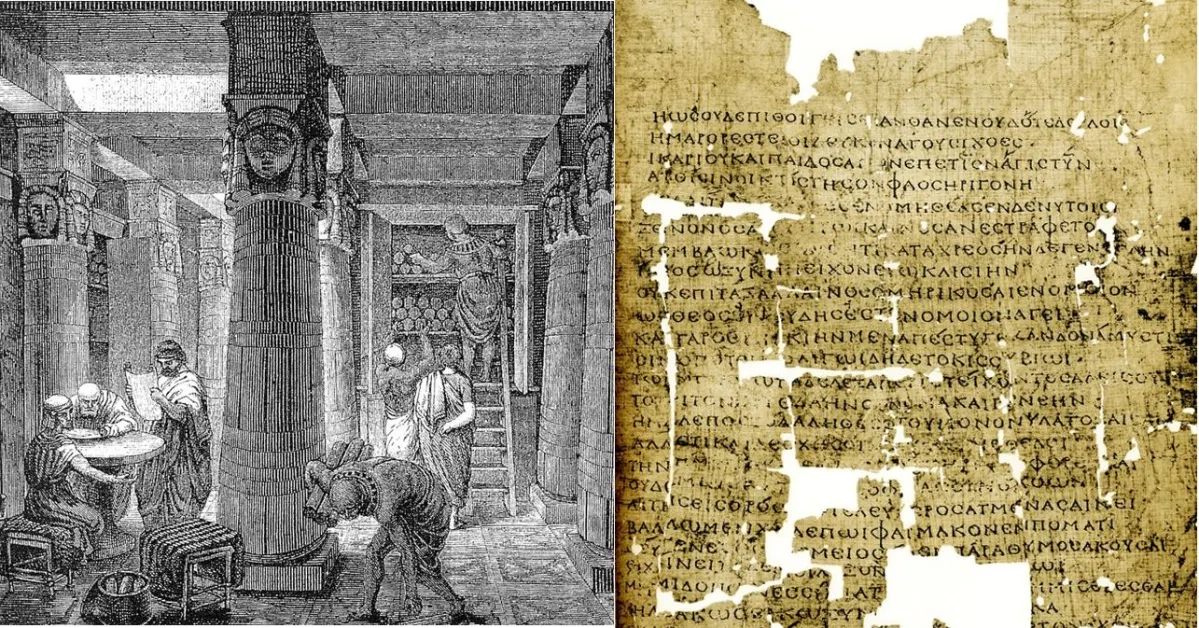The Library of Alexandria, one of the most renowned institutions of the ancient world, has long been shrouded in mystery and speculation. Located in Alexandria, Egypt, it was founded in the 3rd century BCE and was home to hundreds of thousands of scrolls containing the knowledge of the ancient world. The library’s destruction, however, has been the subject of historical debates for centuries. While its loss is often seen as one of history’s most significant intellectual tragedies, the truth about what happened to it remains elusive, leading many to wonder if the entire story has been deliberately obscured.
The Library of Alexandria was established during the reign of Ptolemy II Philadelphus as part of the more significant Ptolemaic dynasty’s ambition to make Alexandria the Mediterranean intellectual and cultural hub. It housed works from the most outstanding scholars of the time and was open to intellectuals worldwide. With its extensive collection of scrolls, the library was a beacon of knowledge, housing works on science, philosophy, literature, and mathematics. The library’s famous scholars included Euclid, Archimedes, and Eratosthenes, whose contributions laid the groundwork for future discoveries.
The tale of the library’s destruction is complicated because multiple events over several centuries may have contributed to its eventual loss. One of the most commonly cited causes of the library’s demise is the fire set by Julius Caesar’s forces in 48 BCE. Caesar’s ships were burned during his siege of Alexandria, and the flames spread to the city, potentially reaching the library. This fire is believed to have destroyed a large portion of the collection. Still, evidence supporting the extent of the damage is scant, and some argue that the library’s holdings had already been significantly reduced before the event.
However, other factors likely played a role in the library’s decline. By the 2nd century CE, during the reign of Emperor Aurelian, the library was already in a state of decay. The city was ravaged by civil war, and the Serapeum, a temple dedicated to the god Serapis that housed part of the library’s collection, was destroyed by Aurelian’s forces. While this was another blow to the library’s holdings, it is unclear how much of the original library had survived by this time.
The library’s final blow may have come in the 4th century CE, with the rise of Christianity in the Roman Empire. In his campaign to eradicate paganism, the bishop Theophilus of Alexandria is said to have ordered the destruction of the Serapeum and its remaining scrolls. Some historians suggest that this action was part of a more significant effort to suppress knowledge contradicting Christian teachings. However, no concrete evidence supports that the Library of Alexandria, in its final form, was destroyed in one violent act by Theophilus or his followers.
Despite these events, there remains a sense that the true extent of the destruction may have been covered up or obscured by subsequent generations. In the centuries following the library’s destruction, various sources documented the loss of knowledge, but details remained vague, and much of the information was lost to time. The library’s role as the intellectual heart of the ancient world became a symbol of the fragility of knowledge and the vulnerability of culture to the whims of political and religious change.
The mystery surrounding the library’s destruction has been compounded by the fact that the exact location of the library remains unknown. While many believe it was located near the ancient harbor of Alexandria, archaeological efforts have yet to uncover definitive proof of its location. Some even argue that the library was never destroyed; rather, its knowledge was dispersed across other learning centers in the ancient world.
Today, the Library of Alexandria remains an enduring symbol of the pursuit of knowledge and the tragic loss of cultural heritage. The true story of its destruction may never be fully known, but its mystery inspires fascination and reflection on how societies preserve—or lose—their intellectual and cultural treasures. The Library of Alexandria’s story is not just a tale of the past but a cautionary reminder of safeguarding knowledge for future generations.



